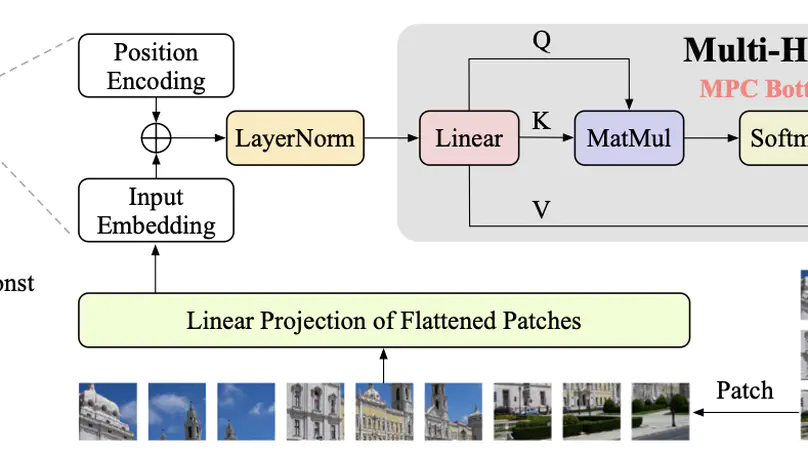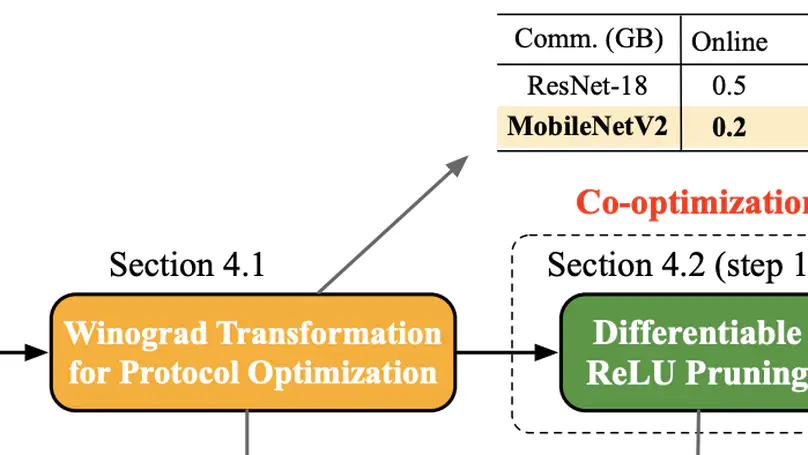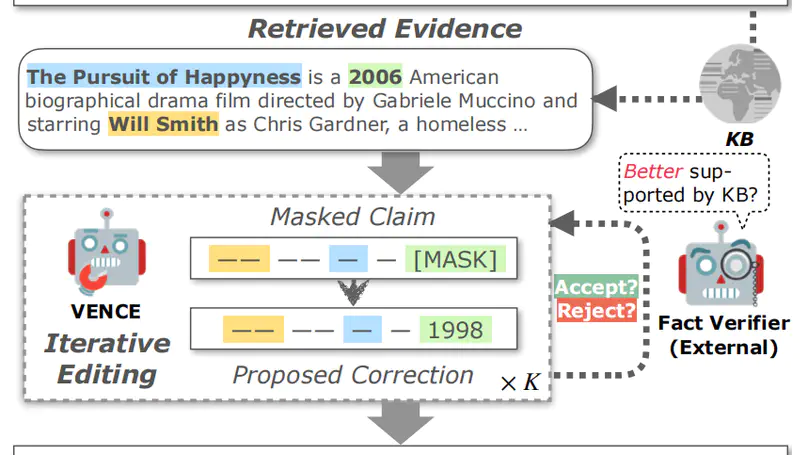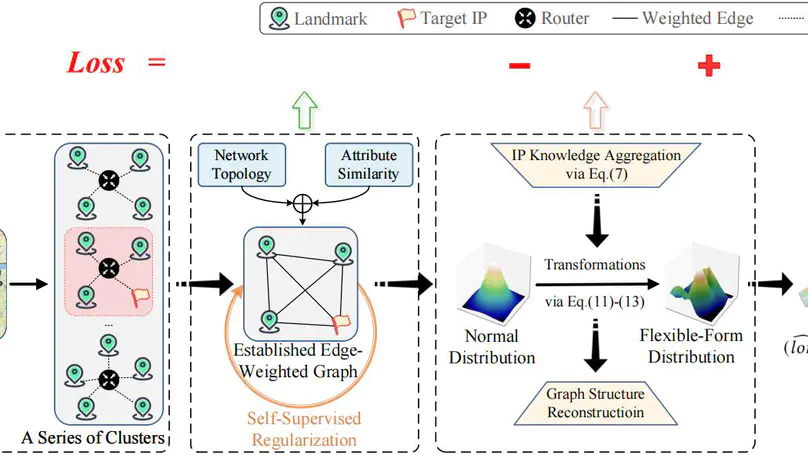Biography
I am currently a first-year master student at Peking University (PKU) in Institute for Artificial Intelligence and School of Software and Microelectronics. I am now advised by Prof. Meng Li and Prof. Runsheng Wang, and devoted to efficient and secure deep learning system.
My main interested research topics include (but not limited to):
- Efficient AI: model compression and acceleration
- Secure AI: privacy-preserving deep learning
- Large language model (LLM), CNN and Vision Transformers.
Download my resumé (not avaliable temporarily).
- Efficient and secure deep learning
- CV, NLP and graph learning
- Music (fingerstyle guitar and singing)🎸
- Badminton🏸 Fitness
Master in School of Software and Microelectronics, 2023-Present
Peking University
BSc in School of Software Engineering, 2019-2023
University of Electronic Science and Technology of China
Research Theme
ML and DL build the AI world!
Make heavy models lighter and faster!
Preserve the pricacy of model and data!
Experience
Researches include:
- Efficient and secure multi-modal deep learning, advised by Prof. Meng Li and Prof. Runsheng Wang
- Devoted to building better AI systems with high performance, efficiency and security.
Researches include:
- Study factuality and faithfulness in natural language generation (NLG), advised by Prof. Yanghua Xiao
- One paper about factual error correction is accpeted by AAAI 2023
Researches include:
- Graph Neural Networks (GNN) and IP Geolocation, advised by Prof. Fan Zhou
- One paper is accepted by KDD 2022
Accomplishments 荣誉奖项
Talks
Featured Publications

Secure multi-party computation (MPC) enables computation directly on encrypted data and protects both data and model privacy in deep learning inference. However, existing neural network architectures, including Vision Transformers (ViTs), are not designed or optimized for MPC and incur significant latency overhead. We observe Softmax accounts for the major latency bottleneck due to a high communication complexity, but can be selectively replaced or linearized without compromising the model accuracy. Hence, in this paper, we propose an MPC-friendly ViT, dubbed MPCViT, to enable accurate yet efficient ViT inference in MPC. Based on a systematic latency and accuracy evaluation of the Softmax attention and other attention variants, we propose a heterogeneous attention optimization space. We also develop a simple yet effective MPC-aware neural architecture search algorithm for fast Pareto optimization. To further boost the inference efficiency, we propose MPCViT+, to jointly optimize the Softmax attention and other network components, including GeLU, matrix multiplication, etc. With extensive experiments, we demonstrate that MPCViT achieves 1.9%, 1.3% and 3.6% higher accuracy with 6.2x, 2.9x and 1.9x latency reduction compared with baseline ViT, MPCFormer and THE-X on the Tiny-ImageNet dataset, respectively. MPCViT+ further achieves a better Pareto front compared with MPCViT. The code and models for evaluation are available at https://github.com/PKU-SEC-Lab/mpcvit.

Deep neural network (DNN) inference based on secure 2-party computation (2PC) can offer cryptographically-secure privacy protection but suffers from orders of magnitude latency overhead due to enormous communication. Previous works heavily rely on a proxy metric of ReLU counts to approximate the communication overhead and focus on reducing the ReLUs to improve the communication efficiency. However, we observe these works achieve limited communication reduction for state-of-the-art (SOTA) 2PC protocols due to the ignorance of other linear and non-linear operations, which now contribute to the majority of communication. In this work, we present CoPriv, a framework that jointly optimizes the 2PC inference protocol and the DNN architecture. CoPriv features a new 2PC protocol for convolution based on Winograd transformation and develops DNN-aware optimization to significantly reduce the inference communication. CoPriv further develops a 2PC-aware network optimization algorithm that is compatible with the proposed protocol and simultaneously reduces the communication for all the linear and non-linear operations. We compare CoPriv with the SOTA 2PC protocol, CrypTFlow2, and demonstrate 2.1× communication reduction for both ResNet-18 and ResNet-32 on CIFAR-100. We also compare CoPriv with SOTA network optimization methods, including SNL, MetaPruning, etc. CoPriv achieves 9.98× and 3.88× online and total communication reduction with a higher accuracy compare to SNL, respectively. CoPriv also achieves 3.87× online communication reduction with more than 3% higher accuracy compared to MetaPruning.

Given a possibly false claim sentence, how can we automatically correct it with minimal editing? Existing methods either require a large number of pairs of false and corrected claims for supervised training or do not handle well errors spanning over multiple tokens within an utterance. In this paper, we propose VENCE, a novel method for factual error correction (FEC) with minimal edits. VENCE formulates the FEC problem as iterative sampling editing actions with respect to a target density function. We carefully design the target function with predicted truthfulness scores from an offline trained fact verification model. VENCE samples the most probable editing positions based on back-calculated gradients of the truthfulness score concerning input tokens and the editing actions using a distantly-supervised language model (T5). Experiments on a public dataset show that VENCE improves the well-adopted SARI metric by 5.3 (or a relative improvement of 11.8%) over the previous best distantly-supervised methods.

Pinpointing the geographic location of an IP address is important for a range of location-aware applications spanning from targeted advertising to fraud prevention. The majority of traditional measurement-based and recent learning-based methods either focus on the efficient employment of topology or utilize data mining to find clues of the target IP in publicly available sources. Motivated by the limitations in existing works, we propose a novel framework named GraphGeo, which provides a complete processing methodology for street-level IP geolocation with the application of graph neural networks. It incorporates IP hosts knowledge and kinds of neighborhood relationships into the graph to infer spatial topology for high-quality geolocation prediction. We explicitly consider and alleviate the negative impact of uncertainty caused by network jitter and congestion, which are pervasive in complicated network environments. Extensive evaluations across three large-scale real-world datasets demonstrate that GraphGeo significantly reduces the geolocation errors compared to the state-of-the-art methods. Moreover, the proposed framework has been deployed on the web platform as an online service for 6 months.
Recent Publications
Contact
- zwx.andy@outlook.com
- Beijing, China
